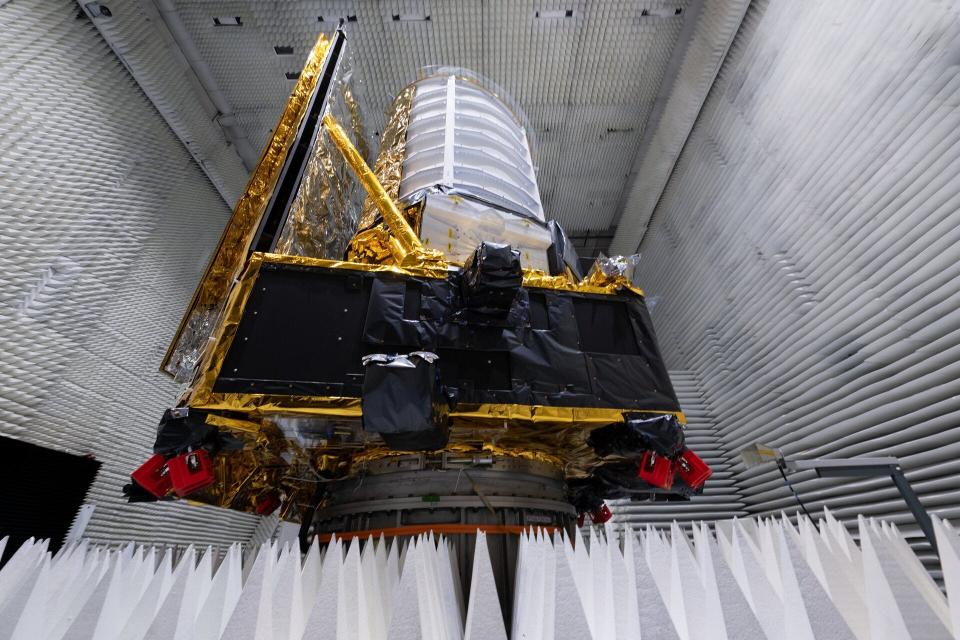SpaceX set to launch high-profile European space telescope to study dark energy
One of Europe's most high-profile science missions is slated to launch on a SpaceX Falcon 9 rocket this weekend, potentially giving scientists deeper insight into the mysteries of dark energy and dark matter.
Launch of the European Space Agency's Euclid space telescope from Cape Canaveral Space Force Station in Florida, slated for 11:11 a.m. EDT Saturday, will pave the way for gathering data on dark energy and matter, both of which are believed to make up 95% of the universe. Scientists say they are responsible for the growth and development of the universe, too.
"We're starting from this embarrassing situation ... cosmology leads us today by observing that only 5% of all the universe is actually atoms and particles that we are all made of," Giuseppe Racca, the European Space Agency's project manager for Euclid, said in a pre-launch briefing with reporters. "All the rest, 95%, is made up of things that we don't really know."

Racca said scientists know the universe began expanding about 13.7 billion years ago and that the process hasn't stopped since, but what remains to be understood is why the speed of that expansion has appeared to change.
"It has been seen that the expansion has started accelerating," Racca said. "To explain this latest acceleration, cosmologists have introduced the concept of dark energy, an energy that should produce this force – this repulsive force – to allow the universe to accelerate in these last 10 billion years."
That 10-billion-year point will be a focus for the Euclid telescope, Racca said. It will, at least as far as space telescopes go, use a relatively wide field of view: about two-and-a-half-times the size of the moon. He expects that it will cover the galactic sky in about six years.
The nearly billion-dollar mission will ultimately generate a map of the large-scale structure of the universe by observing billions of galaxies across those 10 billion light-years. Scientists hope that helps them better understand not only how the universe formed, but the specific roles dark energy and matter played – and perhaps how they will interact moving forward.
For subscribers: 60 years ago, women broke the ceiling to space. More are flying with every mission
The space telescope, which sports a nearly four-foot (1.2-meter) primary mirror, was built by Thales Alenia Space and Airbus Defense and Space in Europe before it was transported to the Cape in May.
Weather conditions around Launch Complex 40 are expected to be 90% "go," according to a Wednesday forecast issued by the Space Force. Downrange conditions in the Atlantic Ocean for the recovery of Falcon 9's booster were also listed as "low risk."
Saturday's launch attempt includes an instantaneous window, meaning Falcon 9 must launch exactly on time or delay to another day. If the launch pushes to Sunday, weather conditions are expected to drop slightly to 70% "go."
Space tourism: Virgin Galactic reports successful first commercial spaceflight with 3 Italian specialists
Beyond Saturday's Euclid launch, the Eastern Range's schedule remains uncertain. Another batch of SpaceX's Starlink satellites are slated to launch sometime during the first half of July, but schedules have not yet been solidified for that mission.
For the latest, visit floridatoday.com/launchschedule.
Contact Emre Kelly at aekelly@floridatoday.com. Follow him on Twitter, Facebook, and Instagram at @EmreKelly.
This article originally appeared on USA TODAY NETWORK: SpaceX to launch Europe's Euclid space telescope to study dark energy

